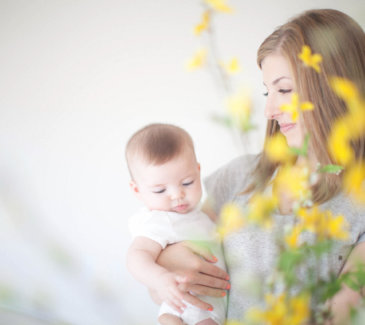When my kids were younger, I remember being very excited when summer was coming to an end. At that stage of my life, in the trenches of raising itty-bitty humans, summer break meant hot days at the pool trying to keep little people alive while navigating naptimes, diaper changes, playdates, and the occasional (OK, daily) tantrum.
I couldn’t wait for the schedule and structure of preschool to begin in September.
Fast-forward a few years and I find myself wishing the slower pace of summer could last forever. Those people who used to be my babies now range from second to tenth graders, and the beginning of a new school year inspires a bit of anxiety.
Don’t get me wrong: I am looking forward to the structure of the school year and to getting everyone back into the groove, but the thought of managing the routine, schedules, carpools, and activities, along with riding in the passenger seat for hours with a new teen driver, have my head spinning!
I know that if I, as a forty-five-year-old woman, am experiencing anxiety, my kids are certainly feeling some of it as well.
Common signs of anxiety in teens
Being aware of some common signs of anxiety can be helpful because we can recognize it quickly when it crops up and teach our kids how to cope.
Some common symptoms of anxiety in children and teens include:
- changes in sleep patterns: e.g., trouble falling asleep, trouble staying asleep, restless sleep
- changes in social interaction: e.g., isolating and not wanting to participate in usual activities
- changes in behavior: e.g., irritability, mood swings, drastic change in usual behavioral functioning
- physical distress: e.g., headaches, stomachaches, general feeling of malaise with no medical cause, fatigue
- and changes in school performance: e.g., missing assignments, failing tests, not keeping up with the usual pace of work
This is not an exhaustive list, but, as I often tell parents: trust your intuition because you are the expert in your child. If you are concerned, pay attention and don’t be afraid to ask questions and get help if needed.
Three words to help your teens handle anxiety
If you discover that your child is experiencing anxiety, don’t panic!
When dealing with children and teens with anxiety, it is essential to help them understand that they are not powerless. In fact, quite the opposite is true!
They can “boss” their anxiety back and use strategies and tools to regain a sense of equilibrium and a feeling of well-being. In my practice, I like to use three “S” words to illustrate how to teach our kids to navigate the experience of anxiety.
Speak
The Bible is full of verses regarding fear and anxiety, and I know that God longs for us to experience the joy and peace that freedom from anxiety brings. He doesn’t want us to be afraid and even gives us instructions on how to deal with fear.
In 1 Peter 5:7, we are commanded to cast all our anxieties onto God because he cares for us. It may be difficult for younger children and teens to conceptualize what casting our cares on God looks like. What a great opportunity we have as parents to be an earthly representation of their loving heavenly Father. How do we demonstrate to our kids how to cast their cares on him?
The first and most important step is to speak.
Sometimes, the fear of the feeling of anxiety can be paralyzing. The act of putting words to our feelings can give us a sense of peace and freedom. I might model this for my kids by saying, “You know what? I am noticing that I am feeling anxious (worried, scared) about this situation. I need a minute to take a breath and pray about this. I know that God doesn’t want me to hang onto this fear, so I’m going to talk to him about it.”
This way, I show my children what it’s like to put words to my feelings and demonstrate that I can share with God what is going on inside of me.
For a child or teen who is not comfortable verbalizing, it may be helpful to write about these feelings. Keeping a journal (or, for younger children, drawing a picture) about how they feel can be helpful.
The point here is to get the feelings outside of the body. Feelings are not a secret to be kept, and they are nothing to be ashamed of.
Separate
This is the part where we teach our kids to “boss” the anxiety back.
We can teach our children that they are separate from their thoughts. Many times, our feelings are the direct result of the thoughts we have. It is important that we teach our children that a thought is simply that: a thought.
Furthermore, the thought we have might not even be based on truth. When we are ruminating on distorted thoughts, anxiety can ramp up and cause severe distress.
Ask your child questions about what he/she is thinking in order to separate the child from the thought. “I understand that you’re scared. That must be hard. Can you tell me what you’re thinking about this in your head? What are you telling yourself about this?”
It is very important to make clear the fact that thoughts are not necessarily reality and that we have the power to make choices about what takes up space in our brains. When our children are able to call an anxiety-producing thought out for what it is, they have the chance to “boss” the anxiety back with a statement like, “I know you are just a thought, and I know that I can take ahold of you, speak about you, and decide if you’re true. You do not have power over me.”
Make sure to validate your child’s feelings of fear while teaching them to examine the thoughts associated with it.
Soothe
Finally, we must become familiar with what helps to create safety for ourselves when we feel anxious.
Spend some time with your child in a peaceful moment to talk about how to help soothe and calm himself or herself during anxious times. Share with your child some of the things you do to calm yourself.
Some ideas include:
- praying
- deep breathing
- visualizing a happy and safe place
- remembering a pleasurable experience from the past
- journaling
- coloring
- listening to soothing or uplifting music
- playing a musical instrument
- reading favorite Scriptures
- taking a warm bath
- asking for a hug
- talking to a trusted friend or family member
- doing a puzzle
The options are endless and very personal.
Brainstorm ideas with your child and make a list of anxiety antidotes. It helps to have some ideas ready for those anxious moments. We know that anxiety makes it hard for us to think clearly. Thinking about these things when we are calm is a great way to care for ourselves and be prepared for anxiety when it crops up.
Model how you daily trust in God
Let’s teach our children that the Lord desires their peace, joy, and abundant life.
Let’s show them practically what it looks like to give our anxieties over to him.
Let’s reassure them of the truth that they can navigate not only a new school year but also every new experience that comes their way by trusting the One who goes before them, behind them, and is right beside them—in this moment, and always.
The Christian Parenting Prayer Journal
If we are going to raise the next generation of kids who honor the Lord and change our culture for his glory, we have got to refocus and re-strategize. Of all the hundreds of things we do each day for our kids, we have to believe that praying for them is the single most powerful and significant thing we can offer.
In an effort to resource you in doing this, we have written a prayer journal that I hope you will order. It is set up to have one main focus to pray over your kids each week of the school year, beginning in September. There’s a place to make notes on specific areas you’re praying about for your kids, as well as related Scripture to guide you in praying each week.
I believe that if Christian parents will band together and commit to faithfully prayer over their kids, we WILL see a difference.
Keep up the good fight in raising your kids and give yourself a break in the places where you haven’t gotten it completely right.



